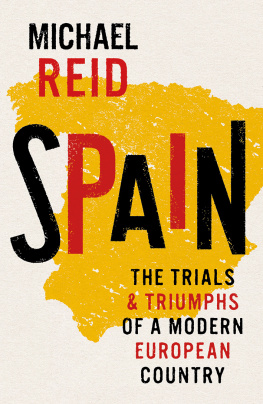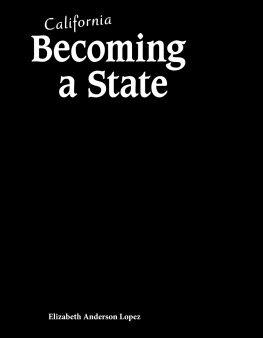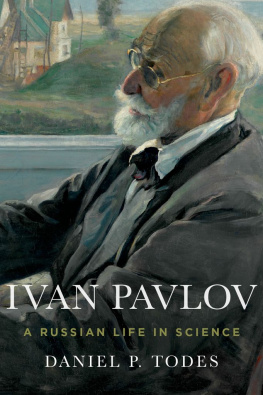López Iván - Los Indignados: Tides of Social Insertion in Spain
Here you can read online López Iván - Los Indignados: Tides of Social Insertion in Spain full text of the book (entire story) in english for free. Download pdf and epub, get meaning, cover and reviews about this ebook. City: Spanien, year: 2018;2017, publisher: John Hunt (NBN), genre: Politics. Description of the work, (preface) as well as reviews are available. Best literature library LitArk.com created for fans of good reading and offers a wide selection of genres:
Romance novel
Science fiction
Adventure
Detective
Science
History
Home and family
Prose
Art
Politics
Computer
Non-fiction
Religion
Business
Children
Humor
Choose a favorite category and find really read worthwhile books. Enjoy immersion in the world of imagination, feel the emotions of the characters or learn something new for yourself, make an fascinating discovery.

- Book:Los Indignados: Tides of Social Insertion in Spain
- Author:
- Publisher:John Hunt (NBN)
- Genre:
- Year:2018;2017
- City:Spanien
- Rating:4 / 5
- Favourites:Add to favourites
- Your mark:
- 80
- 1
- 2
- 3
- 4
- 5
Los Indignados: Tides of Social Insertion in Spain: summary, description and annotation
We offer to read an annotation, description, summary or preface (depends on what the author of the book "Los Indignados: Tides of Social Insertion in Spain" wrote himself). If you haven't found the necessary information about the book — write in the comments, we will try to find it.
López Iván: author's other books
Who wrote Los Indignados: Tides of Social Insertion in Spain? Find out the surname, the name of the author of the book and a list of all author's works by series.
Los Indignados: Tides of Social Insertion in Spain — read online for free the complete book (whole text) full work
Below is the text of the book, divided by pages. System saving the place of the last page read, allows you to conveniently read the book "Los Indignados: Tides of Social Insertion in Spain" online for free, without having to search again every time where you left off. Put a bookmark, and you can go to the page where you finished reading at any time.
Font size:
Interval:
Bookmark:



First published by Zero Books, 2018
Zero Books is an imprint of John Hunt Publishing Ltd., Laurel House, Station Approach, Alresford, Hants, SO24 9JH, UK
www.johnhuntpublishing.com
www.zero-books.net
For distributor details and how to order please visit the Ordering section on our website.
Text copyright: Richard R. Weiner and Ivn Lpez 2017
ISBN: 978 1 78535 312 3
978 1 78535 313 0 (ebook)
Library of Congress Control Number: 2016945822
All rights reserved. Except for brief quotations in critical articles or reviews, no part of this book may be reproduced in any manner without prior written permission from the publishers.
The rights of Richard R. Weiner and Ivn Lpez as authors have been asserted in accordance with the Copyright, Designs and Patents Act 1988.
A CIP catalogue record for this book is available from the British Library.
Design: Stuart Davies
Cover image: igo Errejn of the Podemos bloc makes a point in the Spanish parliament. Albert DiLolli, El Mundo, 13 January 2016
Printed and bound by CPI Group (UK) Ltd, Croydon, CR0 4YY, UK
We operate a distinctive and ethical publishing philosophy in all areas of our business, from our global network of authors to production and worldwide distribution.
For our sons Gael, Aimar, Sean and Yann and their futures
The Spanish Cockpit is the title of Franz Borkenaus 1937 book on the flows, the entanglements, and the enfolding/unfolding of the Spanish Revolution for democracy and the Counter-Revolution led by General Francisco Franco. Spain today is again a cockpit amidst legitimation crises; amidst the precarity engendered by over three decades of neoliberal political economy; and amidst the extension of a transition to democracy. Ironically, a movement for democratizing has emerged in the celebrated post-Franco consolidation of liberal democracy.
Our short book traces the commitment, the lan, and the vision of Los Indignados as a movement of practices and claims for a further Transition on the Spanish road to democracy a movement called from the future, breaking with the past.
Following Alain Touraines sociology of social movement as an institutionalizing leveraging to reorganize the field of historicity, the authors have been keeping up with Los Indignados for these past four years. This movement of the Enraged (Indignants) starts in both the 15-M (15 May 2011) occupation of the Puerta del Sol in Madrid and an anti-evictions movement in Catalonia in the wake of the 2008 Great Recession.
We sensed that Los Indignados was a movement redefining practices within a struggle of grassroots municipalismo. These tended to be a decentered and non-totalizing movement for interurban and interregional social pacts, as well as a plurinational reframing of the Spanish peoples. Eventually, in 2014, an electorally oriented political arm emerged to coordinate these tides for reinserting/re-embedding a notion of social sustainability for the twenty-first century.
These critical citizens practices reveal a genealogy of moral revaluation as reciprocal solidarity of a more sharing economy. A most overused buzzword of the new century is resilience: understood as our bouncing back from turbulence, vulnerability, disaster. Somehow the concept of solidarity has been eclipsed, defined minimally as a synonym for the downward-flowing social protection of the state. Social solidarity can be better understood as a resilience bubbling up from below in a new form of social pact-ing of Homo reciprocans rather than Homo economicus (see Bowles and Gintis, 1998). This is a form of social pacting that is neither opaque nor exclusive, one not imbricated within a cartelized or corporatist membrane reminiscent of Francos Vertical Syndicate, and not sustained in what Juan Linz refers to as the post-Franco minimalist Transition toward democratization. This had been a pacting by a political class (La Casta) of bipartisan political parties (PP, PSOE). The minimalist Transition obsessed with consensus and forgetting the trauma of the Civil War has been only a surface dismantling of the Vertical Syndicate, making use of direct government grants to co-opt the trade union movement.
This short book genealogically studies this emerging new phenomenon of bonding connection as a significant new social form and framework of knowledge, creating critical space for institutionalizing leverage. The New Transition recalls Spanish traditions of municipal mutual aid initiatives (1840s1936) within a confluence strategy of municipalist, interurban, and interregional pacts among the Popular Unity platforms and Tides (mareas) associated with the evolving 15-M Indignados movement. The book makes a start at identifying a promising new form of social pacting among what Elinor Ostrom (1990) categorizes as reciprocators (reciproqueteurs), not atomized and isolated entrepreneurs (cf. Ostrom and Walker, 2009).
The book serves both as a political sociology argument and as a sourcebook with an introductory timeline to grasp genealogy, and with an introductory overview of the most significant of the more than 1,000 political parties in 52 Spanish provinces what Indignados leaders Ada Colau and Juan Carlos Monedero wryly refer to as a soup of acronyms.
We have discussed many of the arguments in papers presented at annual conferences of the Conference of Europeanists based at Columbia University, World Congresses of the International Political Science Association, as well as at the University of Chicago, the University of Vienna, and the New York City Telos Conferences. Our ruminations draw upon the continuing stimulation of seminars for over two decades at the Minda de Gunzburg Center for European Studies at Harvard University. Special note must be made of the inspiring examples in guiding urban movements by Henry Shelton and Carol Shelton of the George Wiley Center in Providence and Frances Fox Piven in New York City.
We have been bolstered by the encouragement of Ramn Cotarelo, Universidad Nacional de Educacin a Distancia, Madrid; Juan Dez Medrano, Universidad Carlos III, Madrid; and Miguel ngel Ruiz de Azua, Universidad Complutense, Madrid; as well as the many kindnesses and guidance provided by Alain Touraine over the decades starting with his Centre dtude des mouvements sociaux, EHESS, Paris. A word of thanks to online journals that have provided up-to-the-minute reporting on the unfolding genealogy of Los Indignados: Open Democracy, Left Flank, and Jacobin. For Andrew Buchwalter, Thomas Cobb, William Hutchinson, Edward Markward, Laurence Marlow, Mark Motte, and Irvin Schonfeld, a special note of gratefulness for the sustenance and understanding that enduring friendship brings. For Amy Tibbetts at Rhode Island College and Helen Pardoe at John Hunt Publishing a bouquet of appreciation for help in editing and merging files. Many thanks to Yann Weiner in assuring high resolution of pictures and figures in a digitizing century. And to our patient partners Danielle and Brenda, the biggest thanks of all.
Providence and Zaragoza
| Right |
|---|
Font size:
Interval:
Bookmark:
Similar books «Los Indignados: Tides of Social Insertion in Spain»
Look at similar books to Los Indignados: Tides of Social Insertion in Spain. We have selected literature similar in name and meaning in the hope of providing readers with more options to find new, interesting, not yet read works.
Discussion, reviews of the book Los Indignados: Tides of Social Insertion in Spain and just readers' own opinions. Leave your comments, write what you think about the work, its meaning or the main characters. Specify what exactly you liked and what you didn't like, and why you think so.






